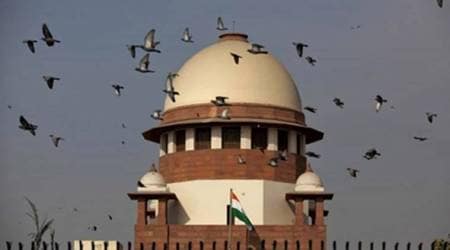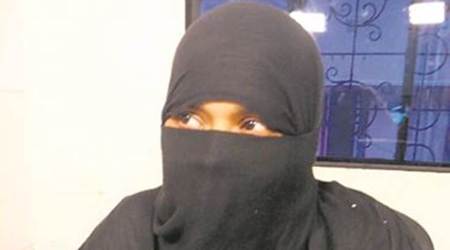 Women celebrate the Supreme Court verdict at Byculla on Tuesday. (Source: Express photo by Prashant Nadkar)
Women celebrate the Supreme Court verdict at Byculla on Tuesday. (Source: Express photo by Prashant Nadkar)
The centuries old practice of triple talaq was set aside by the Supreme Court in a landmark 3-2 verdict on Tuesday, in which the majority agreed that the practice was un-Islamic and “arbitrary”.
The triple talaq verdict saw three different judgments from the five-member constitutional bench which heard a clutch of petitions by Muslim women challenging its validity.
The verdict was hailed by the government, political parties, activists and the petitioners, with Prime Minister Narendra Modi describing it as “historic” and saying it has granted equality to Muslim women.
Here are the five must read stories from today’s Indian Express
1) Faizan Mustafa, the Vice-Chancellor of Nalsar University of Law, Hyderabad, takes a deep dive into the 395-page judgment and explains it from the point of view of Chief Justice of India J S Khehar, Justice Rohinton F Nariman and Justice Kurian Joseph.
“The issues in the case were so complicated that we have as many as three judgments. Chief Justice of India J S Khehar authored one opinion, with which Justice S Abdul Nazeer agreed. The second opinion was authored by Justice Kurian Joseph. The third judgment was written by Justice Rohinton F Nariman on behalf of himself and of Justice Uday U Lalit. Justice Kurian agreed with Justice Khehar on some points, and with Justice Nariman on others. Let us understand the judgments and reasons for the different opinions. All the opinions have clearly stated that they are dealing just with instant triple divorce, and not with other forms of divorces under Muslim Personal Law.” READ MORE
 Muslim women flash victory signs after the Supreme Court judgment. (Source: Express photo)
Muslim women flash victory signs after the Supreme Court judgment. (Source: Express photo)
2) Pratap Bhanu Mehta, the Vice-Cancellor of Ashoka University, argues that the Supreme Court invalidated the divorce practice, but the majority did not uphold the constitutional values over religious belief and practice.
“The Supreme Court has done well in striking it down. The only question was the grounds the Court would invoke in doing so, and the ramifications this might have for wider developments on the issue of personal law. On this measure, it has to be said the Court’s decision is disappointing. It reflects the fact that India is still not ready to embrace the full promise of individual freedom and equality embodied in its Constitution; they will have to be won in bits and scraps, hesitantly and amelioratively.” READ MORE
3) In a special to The Indian Express, Arif Mohammad Khan, who resigned in 1986 from the Rajiv Gandhi government over its stand on the Shah Bano case, writes that the triple talaq judgment will change the lives of not only Muslim women who despite heavy odds have fought and won this long arduous battle but will inspire other Indian women as well who are facing discrimination at home or at places of work. READ MORE
 Muslim women distribute sweets after hearing the judgment. (Source: Express photo)
Muslim women distribute sweets after hearing the judgment. (Source: Express photo)
4) The Indian Express spoke to two lawyers, M R Shamshad and Anas Tanwir, on Tuesday’s triple talaq verdict. Shamshad is Advocate-on-Record in the Supreme Court of India. He appeared for the AIMPLB and assisted Kapil Sibal during the hearing of the triple talaq case. Tanwir practises in the Supreme Court of India. He is interested in Muslim Personal Law. READ MORE
5) We take a look at the women who moved the Supreme Court to invalidate the instant triple talaq practice: From Shayara Bano, the face of the campaign, to an accountant in the Army whose daughter was divorced through the controversial practice. READ MORE

